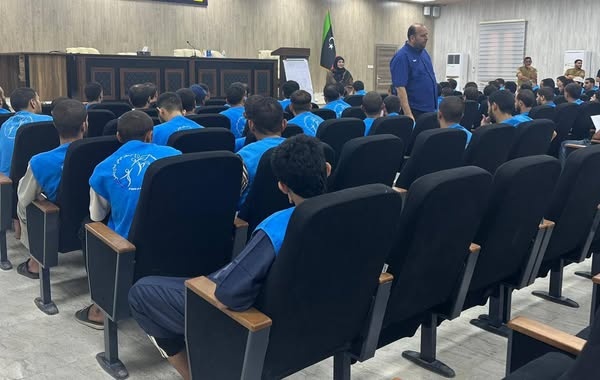
In Misurata, Libya, the National Center for the Treatment and Rehabilitation of Addicts has launched specialized mobile workshops to provide professional training to inmates recovering from addiction.
The initiative, now in its sixth consecutive day, aims to equip 88 participants with practical skills to facilitate their reintegration into the labor market.
The program is part of a memorandum of understanding signed with the Ministry of Labor and Rehabilitation and is supervised by a team of elite trainers across several professional fields.
Amal Safar, Director of the General Administration of Training at the Ministry, and Moaz Al-Asifar, Director of the Inmate Training and Rehabilitation Department, attended the sessions.
In a statement to the Libyan News Agency (LNA), Al-Asifar explained that the workshops train groups of 30 inmates per specialty in areas such as sanitary plumbing, mobile phone maintenance, and refrigeration and air conditioning.
“The main goal of these programs is to raise the professional competence of inmates and qualify them for positive integration into the labor market after completing their treatment and rehabilitation stages,” he said.
Al-Asifar highlighted that the initiative reflects the center’s commitment to comprehensive rehabilitation and professional empowerment. By providing inmates with realistic economic and social alternatives, the program seeks to reduce relapse rates and support sustained recovery.
The training sessions are part of a broader agreement signed in February between the National Center for the Treatment and Rehabilitation of Addicts, the Libyan-Korean Center, and the Tamina Training and Professional Development Center.
The collaboration aims to leverage the training capabilities of these institutions to benefit young people recovering from addiction, offering them the tools to rebuild their lives and achieve long-term stability.
The mobile workshops illustrate a growing focus in Libya on rehabilitation that goes beyond medical treatment, combining skill development with social reintegration. Officials hope that empowering inmates with marketable skills will not only aid individual recovery but also contribute positively to wider community development.



